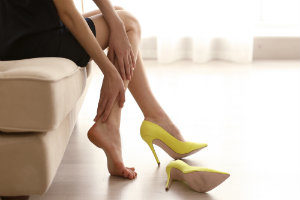Why Do Bunions Happen Anyway?
There are many misconceptions in society, some of which include misunderstandings as to why bunions happen. Others include:
- A single shot of espresso does not have more caffeine than a standard cup of coffee. (It is just more concentrated.)
- Abner Doubleday did not invent baseball. (The sport is likely an evolution of cricket and rounders.)
- Vikings did not wear horns on their helmets. (Vikings were depicted wearing horned helmets in an 1876 opera, and the association between the Norwegian warriors and the horns remains to this day.)
- Medieval Europeans did not actually believe the world to be flat. (Belief in a spherical world has existed since the time of ancient Greek philosophers Plato and Aristotle.)
As we noted, another popular misconception is centered on the causes of bunions. Contrary to common belief, bunions are not caused by fashionable women’s shoes. Now, don’t get us wrong, footwear featuring narrow fronts and high heels do certainly contribute to an existing issue and lead to increased pain. The cause of a bunion, though, is more likely the result of:
- Arthritis. An arthritic condition can change the way you walk. If you start placing greater pressure on the inner edge of y
 our foot, a bunion could potentially develop over time.
our foot, a bunion could potentially develop over time.
- Congenital foot deformities. These are abnormalities that are present at birth and can place the additional stress necessary for creating instability in the joints between the foot and big toe.
- Inherited foot structure. A foot doesn’t have to be considered “deformed” for force loads to be unevenly distributed. An example of this is a flatfoot condition (which is relatively common) that leads to overpronation and excessive pressure on the inner edge of the foot.
- Physical trauma. Certain foot injuries can also be the root cause of a bunion.
No matter the root cause of your bunion, you should come and see us at our Bloomington, IN office if you have developed one of these common toe deformities. An untreated bunion will only worsen over time. Conservative methods can slow a bunion’s development and possibly ease symptoms, but we may recommend surgery to correct the deformity.
For more information about bunion treatment or our practice, either give us a call at (812) 333-4422 or contact us online today and we will be glad to help.



 our foot, a bunion could potentially develop over time.
our foot, a bunion could potentially develop over time.